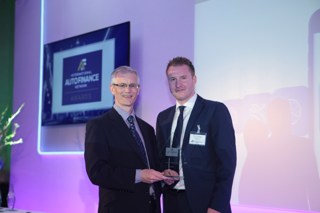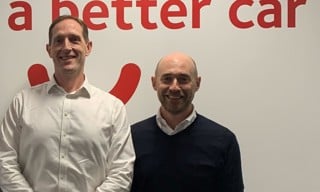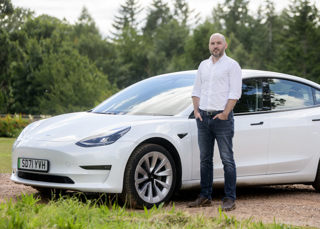The current economic and market sector uncertainty is a “necessary driver of innovation” for leasing companies, Tim Porter (pictured), managing director of Lex Autolease, told delegates at the International Auto Finance Network (IAFN) conference.
He highlighted how leasing companies are grappling with a range of issues in the wake of the EU referendum, while at the same time there is a fast-paced change in consumer buying behaviour, a migration from car ownership to usership, an appetite for 24/7 digital connectivity and on-demand mobility, and the prospect of more shared transport, major advances in electric power and autonomous vehicles.
“The challenge for the leasing sector is, I believe, to reinvent itself. These developments need to be harnessed as an opportunity rather than managed as a threat,” he said.
“My own view is that market disruption of this magnitude is a critical and, I would argue, necessary driver of innovation. For leasing firms that are well-prepared, I’m confident that this will drive game-changing developments and strong commercial performance.”
When re-inventing their businesses, Porter advised leasing companies to consider the work of two Insead business school professors, W Chan Kim and Renée Mauborgne, who developed the ‘Blue Ocean Strategy’.
“They studied a huge number of businesses and found that businesses succeeded when they created uncontested market space – the Blue Ocean – as opposed to competing for dominance in the existing market – the Red Ocean, so called because it’s where a lot of blood can get spilt,” Porter said.
“And, critically, their work highlighted that firms adopting the Blue Ocean strategies could deliver that golden age of differentiation and cost reduction,” Porter said.
He suggested that leasing companies should follow “Blue Ocean thinking”, which focuses on “collaboration as opposed to consolidation”.
“It’s less about market share gain, economies of scale and synergies, and much more about partnerships creating new demand with lower cost and lower risk,” he said.
He suggested that there was already evidence of “simplification and collaboration” in the leasing sector “as part of reinventing the leasing proposition”.
Angela Montacute, products, services and platforms director at Arval, agreed that collaboration is “the way forward”.
“When I look at what a number of our competitors are doing I see many, many people who are developing partnerships and creating integrated mobility platforms,” she said.
She advised companies to “look outside” the leasing sector.
Arval’s parent company BNP Paribas, for example, has a team which specifically looks at start-ups, and has chosen to work with DataKeen, which is “looking at big data analysis for non-data scientists”.
“That’s a big challenge for us,” Montacute said. “We have a lot of big data but turning big data into meaningful information is quite another thing.”
Arval has also partnered with a major bank in Spain, CaixaBank, on a payment innovation hub.
“In the context of our environment, future mobility solutions and the payment side of it this is really interesting for us,” she added.
Faustine Andres, head of innovation at ALD Automotive, suggested that leasing companies don’t have to create new services for the company car driver and to build a strong IT strategy on their own.
“Imagine all the integrated services you can build with the start-ups you can have in your eco system,” she said.
“For example, Apila is the start-up we are working with to digitalise the parking experience. This is a great value proposition for the driver.”
She added: “Forget about competition and think about collaboration.”





















Login to comment
Comments
No comments have been made yet.